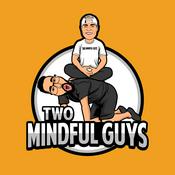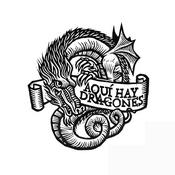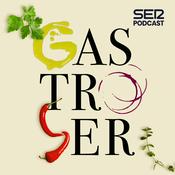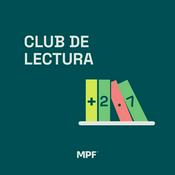31 episodios
- In this episode of Two Mindful Guys, Alex and Tony explore a question that almost everyone has asked themselves: If you could change your past, would you?
They talk about grief, loss, missed opportunities, and the butterfly effect of small decisions that shaped their lives. Through personal stories about losing loved ones, regret, consistency struggles, and life’s unexpected turns, they unpack how pain, mistakes, and growth are deeply connected. The conversation explores why changing the past might erase who we’ve become, how gratitude reframes regret, and why acceptance is the foundation of emotional healing.
The episode ends with a mindful minute reflecting on how far you’ve come—and how every experience helped shape the person you are today.
Takeaways:
The butterfly effect illustrates how small decisions can lead to significant outcomes.
Changing the past could erase the lessons learned from mistakes.
Grief and loss shape our identity and personal growth.
Consistency and persistence are key to achieving long-term goals.
Reflecting on the past can lead to greater self-awareness and acceptance.
Family decisions can have a profound impact on our existence.
It's essential to focus on internal change rather than external circumstances.
Emotional processing is crucial for personal development.
Creating a structured plan can help maintain consistency in efforts.
Accepting the past allows for a more fulfilling present.
Chapters:
00:00 The Butterfly Effect and Changing the Past
09:44 The Impact of Family Decisions on Existence
19:08 The Value of Life Experiences and Personal Growth
19:43 The Power of Consistency and Persistence
21:28 Creating a Game Plan for Content Creation
24:38 Filming Strategies for Consistency
26:47 Mindset and Endurance in Content Creation
29:32 Learning from the Past to Shape the Future
34:26 The Emotional Weight of Regret and Acceptance
38:53 Processing Grief and Moving Forward - In this episode of Two Mindful Guys, Alex and Tony get into one of the most controversial topics there is: religion—and why it creates so much division. They share their personal belief frameworks (Christian-leaning agnosticism vs. a more spiritual, energy-based view) and explore questions most people argue about but rarely sit with: What is God? Why does suffering exist? Is “God’s plan” real? and what happens after we die?
They also unpack big ideas like the fine-tuning argument, heaven and hell as lived experience, the mystery of Jesus’ resurrection, and how altered states (DMT/psychedelics), meditation, and teachings like Dr. Joe Dispenza shape the way people understand consciousness and healing. The conclusion is honest and grounding: we may not have the “right answer,” but we can choose humility, curiosity, and love over ego and certainty.
Takeaways:
Religion is a controversial topic due to differing beliefs.
People often use limited understanding to grasp vast concepts.
Religion can create divides and influence ego.
Personal beliefs shape our understanding of God.
Consciousness may be an evolving aspect of humanity.
Suffering raises questions about God's plan.
Heaven and hell may be experienced in this life.
Religion can provide structure but also limit understanding.
Good and evil are often culturally defined.
The search for purpose is a universal human experience.
Chapters:
00:00 Introduction to Religious Controversy
02:23 Personal Beliefs and Spiritual Perspectives
08:11 The Nature of Suffering and God's Plan
15:45 Heaven, Hell, and Personal Reality
21:20 The Uniqueness of Individual Existence and Consciousness
23:34 The Role of Religion in Understanding Life
24:31 Questioning Religious Narratives
26:54 The Significance of Jesus' Resurrection
28:49 Healing and Higher Frequencies
31:16 The Influence of Ego on Belief
32:12 The Nature of Existence and Consciousness
35:15 The Elusiveness of Answers
37:26 Consciousness and Evolution
40:02 Cultural Perspectives on God
43:56 Embracing Uncertainty in Belief The Conversation Everyone Avoids: Death, Wills, and Clarity | With Jermaine Ee
16/1/2026 | 1 h 16 minIn this conversation, Alex and Tony welcome their first guest, Jermaine from HeirLight, for a raw, meaningful discussion about grief, legacy, and the uncomfortable planning most people avoid. Jermaine shares the recent loss of his mom, what it’s been like navigating grief in real time, and how her story inspired him to build a more accessible way for families to handle wills, trusts, and health directives. Together, they explore why people delay these decisions, how culture and pride shape avoidance, and how clarity can save families from emotional and legal chaos later. The episode closes with a powerful mindful minute: writing the first sentence of your eulogy.
Takeaways:
Jermaine emphasizes the importance of cherishing memories with loved ones.
The conversation highlights the unique ways people process grief.
Building a business can be a way to honor loved ones.
Estate planning is often overlooked but crucial for peace of mind.
Cultural differences affect how love and support are expressed in families.
Self-love is a journey that many struggle with, especially in different cultures.
The importance of listening and being present for others is emphasized.
Grief can manifest in various ways and is a personal journey.
Finding purpose in life can stem from personal experiences and family history.
The mindful minute encourages reflection on one's legacy.
Connect with Jermaine
Jermaine shares more about his work, reflections, and purpose-driven projects here:
Jermaine’s website: https://www.eejermaine.com/
Learn more about HeirLight and accessible estate planning tools here:
HeirLight: https://heirlight.com/en
Chapters:
00:00 Introduction to Germaine and His Journey
02:58 Navigating Grief and Loss
06:03 Cherished Memories and Life Lessons
08:37 The Impact of Family and Cultural Background
11:46 Building HeirLight: A Purpose-Driven Venture
14:46 Understanding the Importance of Wills and Trusts
17:31 Overcoming Inaction: The Need for Estate Planning
20:33 Personal Stories and Reflections on Life and Death
23:37 The Role of Clarity in Life Decisions
26:32 Designing a Better Future with HeirLight
29:27 Finding Purpose Through Personal Experiences
32:12 Coping with Loss and Embracing Change
36:39 Reflections on Fulfillment and Legacy
38:09 Building for the Underserved
39:40 Navigating Grief and Anger
42:05 The Impact of Loss on Purpose
43:37 Creative Entrepreneurship and Personal Growth
50:06 The Journey of Self-Discovery
55:18 Cultural Perspectives on Self-Love
59:54 Giving More Than We Take
01:14:28 Closing Thoughts and Future Aspirations- In this episode, Alex and Tony explore the power of thoughts and how they shape emotions, behavior, and the choices we make every day. They talk about creative ideas, avoidance, inconsistency, and the way anxiety and fear can drain motivation before action even begins. Tony breaks down common thinking traps, how the nervous system influences performance, and why building momentum matters more than sprinting and crashing. The episode includes a guided mindful minute using breathwork and a “leaves on a stream” visualization to help create distance from intrusive thoughts. The conversation encourages listeners to stop waiting for the right moment, create five minutes of consistency, and build a healthier relationship with their mind through awareness, compassion, and practice.
Takeaways:
The power of your thoughts can lead to creative ideas.
Overthinking often stems from emotional avoidance.
Emotions should be felt and processed, not avoided.
Consistency in actions leads to better outcomes.
Pacing yourself is crucial for long-term success.
Taking things personally can distort your perception.
Cognitive distortions can negatively impact your mindset.
Reprogramming your thoughts is essential for growth.
Mindfulness practices can help create distance from thoughts.
Creating time for self-reflection is vital for personal development. - In this episode, Alex and Tony explore the illusion of success and the beliefs society conditions us to chase. They discuss the difference between internal and external success, how comparison and achievement-based worth distort self-value, and why fulfillment often feels just out of reach. Through personal stories, reflections on identity, self-worth, and gratitude, they examine how success is often rooted in control, validation, and survival rather than presence and peace. The conversation invites listeners to slow down, question what they’re chasing, and reconnect with the truth that success isn’t something to earn — it’s something to recognize.
Takeaways:
If we can change the programming, we can change our lives.
What's behind that is really what we're talking about is the entity of you.
The awareness that is you is enough.
The more we listen to our mind, the further away we get from our heart.
The further away we get from our heart, the more we live in this "what if".
Life is about self-discovery and change.
Awareness is key to understanding our true selves.
Más podcasts de Arte
Podcasts a la moda de Arte
Acerca de Two Mindful Guys
Welcome to 2 Mindful Guys! Where we overthink so you don't have to.So unclench, unburden, and unwind because if you are going to pay half your paycheck for coffee you might as well enjoy is stress free.
Sitio web del podcastEscucha Two Mindful Guys, El Descampao y muchos más podcasts de todo el mundo con la aplicación de radio.es

Descarga la app gratuita: radio.es
- Añadir radios y podcasts a favoritos
- Transmisión por Wi-Fi y Bluetooth
- Carplay & Android Auto compatible
- Muchas otras funciones de la app
Descarga la app gratuita: radio.es
- Añadir radios y podcasts a favoritos
- Transmisión por Wi-Fi y Bluetooth
- Carplay & Android Auto compatible
- Muchas otras funciones de la app


Two Mindful Guys
Escanea el código,
Descarga la app,
Escucha.
Descarga la app,
Escucha.






































